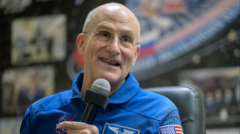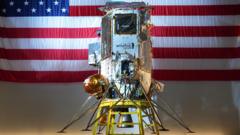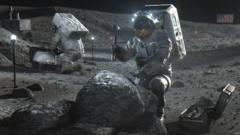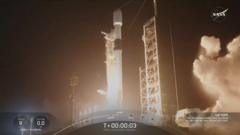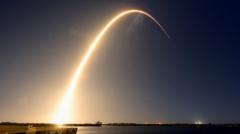In a significant achievement for private space exploration, the Blue Ghost spacecraft successfully landed on the Moon, marking a pivotal moment for the commercialization of lunar missions. Launched by Firefly Aerospace on January 15, Blue Ghost aimed to explore the Sea of Crises, a prominent lunar crater.
Blue Ghost Successfully Lands on Moon, Marking a Milestone for Private Space Exploration
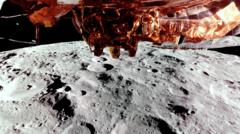
Blue Ghost Successfully Lands on Moon, Marking a Milestone for Private Space Exploration
Private spacecraft Blue Ghost achieves a historic lunar landing, becoming the second commercial vehicle to reach the Moon's surface.
The Blue Ghost mission showcases an ongoing partnership between NASA and private companies, striving to capitalize on lunar exploration for future endeavors beyond Earth. Following its two-week orbit around the Moon, the team at Firefly's Texas headquarters erupted into celebration upon receiving confirmation of the successful landing. This feat positioned Blue Ghost as a groundbreaking venture; according to Dr. Simeon Barber from the Open University, it represents the first successful private lunar exploration.
Dr. Barber highlighted the importance of lunar missions for private companies, as they aim to develop technology that can function in the challenging lunar environment. He emphasized that the Moon's surface could potentially serve as a launch pad for further space exploration, addressing the need for sustainable and cost-effective missions. The last human visit to the Moon took place during the Apollo 17 mission in December 1972, with future lunar landings anticipated as private enterprises reduce costs through competitive innovation.
In this competitive landscape, Intuitive Machines follows suit, preparing to land its Athena spacecraft near the Moon's south pole. However, it follows after the company's prior attempt when its Odysseus spacecraft precariously tipped over upon landing last year. Meanwhile, another private endeavor, Astrobotic Technology, faced a setback earlier this year when its lander crashed back to Earth due to a fuel leak.
Overall, Blue Ghost's successful landing stands as a testament to the potential of private space exploration, paving the way for future human endeavors on the Moon and beyond.
Dr. Barber highlighted the importance of lunar missions for private companies, as they aim to develop technology that can function in the challenging lunar environment. He emphasized that the Moon's surface could potentially serve as a launch pad for further space exploration, addressing the need for sustainable and cost-effective missions. The last human visit to the Moon took place during the Apollo 17 mission in December 1972, with future lunar landings anticipated as private enterprises reduce costs through competitive innovation.
In this competitive landscape, Intuitive Machines follows suit, preparing to land its Athena spacecraft near the Moon's south pole. However, it follows after the company's prior attempt when its Odysseus spacecraft precariously tipped over upon landing last year. Meanwhile, another private endeavor, Astrobotic Technology, faced a setback earlier this year when its lander crashed back to Earth due to a fuel leak.
Overall, Blue Ghost's successful landing stands as a testament to the potential of private space exploration, paving the way for future human endeavors on the Moon and beyond.





